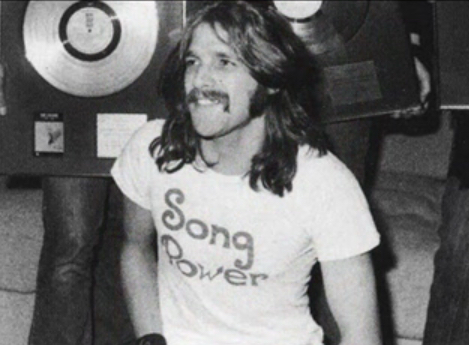They say the deaths of significant cultural figures come in threes. It seems you don’t get to choose those three, because here we are:
Lemmy Kilmeister. David Bowie. And now, Glenn Frey.
Growing up a music snob, certain groups you naturally come to disdain and mock. The Eagles and Glenn Frey in particular filled that slot in my life. It could be said that his public persona was, even in the best light, something of a douchebag. Yet death is not the time for contempt, but for noble remembrance instead. As a recovering music snob with an abiding appreciation for music history, I feel now is the time to make amends.
Thus, without irony or ambiguity, I recognize five great things about Glenn Frey:
- The Eagles’ musical fusion of country, rock and folk was undeniably innovative, and undeniably resonant for their times, and Glenn Frey was a key architect of that. Some say the band stole the country-rock blueprint from Gram Parsons, who overdosed in a Joshua Tree motel room a year after the Eagles’ debut album. Maybe so, but as history observes with “Take It Easy,” the Eagles skillfully refined Parsons’ blueprint into a dazzling edifice that — its banjos and acoustic guitars, picking and harmonies notwithstanding — was as significant and impactful a leap forward from a pre-existing musical foundation as the Ramones or Run-DMC.
- “Lighten up while you still can/Don’t even try to understand” is, at first glance, an insipid lyric. At second glance, it’s insidious. But further reflection reveals it to be a quintessential expression of the Me Generation. Tip of my hat, Glenn Frey.
- Glenn Frey neither sang lead nor guitar soloed on “Hotel California,” a song that darkened my days as amateur disc jockey at high school dances in the 1980s. The image of dudes air-guitaring Joe Walsh’s interminable solo on the backs of the girls they were slow dancing with is seared upon my brain. “Hotel California” was one in a triumvurate of all-time worst yet most popular ballads of this period, alongside Led Zeppelin’s “Stairway to Heaven” and Lynyrd Skynyrd’s “Freebird” (the live version from Skynyrd’s Gold & Platinum: “What song is it you want to hear??”), two songs that by their second halves sent slow dancers into an awkward up-tempo frenzy and/or dissolve into single-player air guitar.
- Of late, when the ‘sound of 1970s California’ is invoked, Fleetwood Mac seems to be the example that people have in mind. As a child of that time and place, I’d agree with this association. Songs like “Over My Head” or the entire Rumours album are the soundtrack to my 1970s pre-adolescent sightings of parents’ friends marriages dissolving into adultery and anomie. But the Eagles lay equal, perhaps greater claim to being progenitors of the 70s California sound. Indeed, for a tale of marital dissolution and generational disillusionment, Glenn Frey’s “Lyin’ Eyes” is for my money an essential statement. By the 1990s, having spent just enough time in bars and lounges in places like Riverside CA, where middle-aged couples go to drink and carouse while their children put themselves to bed, I came to hear in “Lyin’ Eyes” a vision of humanity as chilling as anything Leonard Cohen or Bob Dylan wrote.
- In the U.S., last I heard, the Eagles’ Greatest Hits is the second best-selling album of all time. If you think about where all those LPs, cassettes and CDs might be found, my hunch is you’ll find a map that’s disproportionately southern, midwestern and rural in comparison to the map for Thriller (the #1 all-time best-selling album). While rockers got to have their laugh at the Eagles, the band’s aesthetic innovations were ultimately most influential upon country music. The Eagles’ sound is heard all over contemporary Nashville, as well the good ol’ weird days of Austin. They gave country musicians license to let go of their Okie from Muskogee hatred of long-hairs, to grow their hair down and to rock a little, a formula that continues to have serious legs.In this way, if you’ll forgive me, Glenn Frey was red states’ David Bowie.
Hmm, three out of five ain’t bad.

